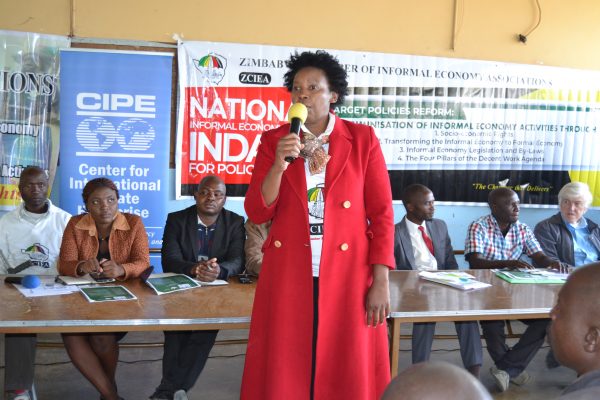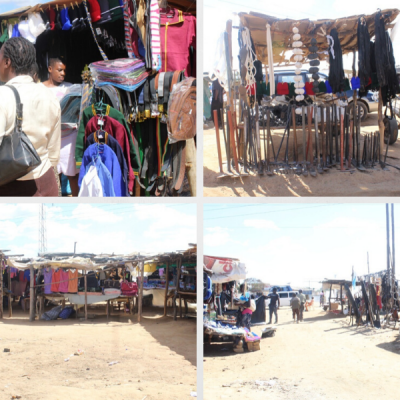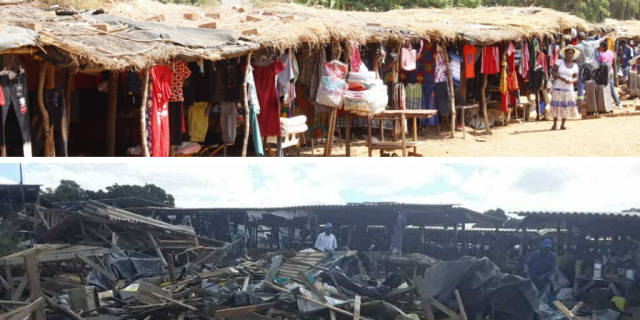
Informal businesses, or businesses with limited access to mainstream economic opportunities and legal protections, are part of what is known as the “informal,” “hidden,” or “underground” sector of the economy. Despite the recurring problems that threaten its very existence, this sector makes up anywhere from 51 percent to 82 percent of total non-agricultural employment in Latin America, Sub-Saharan Africa, and Asia. COVID-19 is a new, additional hurdle that the community in this sector must now also clear.
COVID-19 is affecting every sector of the global economy, and the informal sector experiences unique challenges as its members attempt to navigate government bureaucracy and secure crucial aid. Unfortunately, the informal entrepreneur community experiences a great deal of uncertainty and struggles through many barriers as vendors try to access the help they require. Informality complicates day-to-day business for vendors.
Informality means that traders struggle with acquiring reliable and regulated lines of credit and securing enforceable contracts. Workers lack pensions and experience precarious employment conditions. Informality can also undermine the rule of law—governments cannot effectively police health, safety, and environmental risks that occur in the hidden economy and as a result, they may resort to drastic tactics such as destructive marketplace closures.

While there are many reasons for the existence of an informal economy, COVID-19 continues to highlight the disadvantages of working in one, and why development practitioners should work directly with the informal community to build capacity during the pandemic. In particular, COVID-19 demonstrates the value of informal vendor associations as a mechanism for collective action and representation during times of crisis.
Although informality exists in every country, Zimbabwe has one of the proportionally largest informal sectors in the world; some estimates place the informal sector at 90% of the total workforce. Of that percentage, women comprise 67% of the informal workforce.
One of the key benefits enjoyed by the formal economy is protected property rights. The informal sector lacks such property rights, which means that the government can close and destroy informal markets and punish informal vendors for any reason with little to no warning. This arrangement introduces a significant amount of precarity into informal work. Informal vendors do not have legal recourse or a direct line to the government to petition for different policies since their property does not exist with the legal framework. During the pandemic, Zimbabwe’s government is pursuing different strategies that challenge the informal sector in unique ways.
Most drastically, the government has destroyed informal vendors’ stalls and marketplaces. This is not a new phenomenon. CIPE partner the Zimbabwe Chamber of Informal Economy Associations (ZCIEA) explains that “whenever there is an outbreak, either cholera, or typhoid fever, informal economy workers and traders are blamed as the causes, now we have COVID-19 they are victims again.”
Rather than working through regulated and formal channels or with representatives of the informal economy in Zimbabwe such as ZCIEA, the government independently undermines its own entrepreneurs and the backbone of its private sector.

Marketplace destruction is not the only example of heavy-handed challenges informal vendors face during COVID-19. Zimbabwe’s informal vendor community also struggles because of government restrictions, bureaucracy, and poorly structured policy. Combatting confusing and marginalizing red-tape demonstrates the broader challenges that the informal vendor community experiences.
The national government promised “cushioning” payments to vendors as they attempt to weather the government-sanctioned demolitions and lockdowns. Cushioning funds are crucial for informal vendors, who depend on these payments to secure food and other necessary commodities. However, there are several reasons prohibiting access to these funds, leading to increased reports of domestic violence as families struggle over food shortages.
The national government selected a state-owned enterprise, NetOne, to process cushion payments, although, in 2019, NetOne handled 1.1% of mobile money transactions. Meanwhile, another private company, Econet, handled 98% of mobile money transactions, including the vast majority of those in the informal sector. The Informal Economy Task Force explains that this is an “illogical” move that will marginalize informal traders who mainly use Econet and other smaller private companies.
Informal vendor associations are carrying out new advocacy efforts to draw attention to the informal sector’s struggles under COVID-19. A joint statement endorsed by the Vendors Initiative for Social Transformation; Bulawayo Vendors and Traders Association; National Vendors Union Zimbabwe; and ZCIEA (to name just a few of the signers) calls for an “immediate stop to the demolitions across the country.” The joint statement also brings special attention to Gweru, a city in central Zimbabwe, where the government gave informal traders a single day to empty their stalls before demolitions. The vendors’ organizations also called on the government to provide alternative trading spaces and requested that officials consult representatives from the informal sector as they create new policies.
The Zimbabwe case teaches three important lessons about informality during COVID-19.
First, times of crisis impact the most vulnerable in unique and severe ways. Informal vendors must grapple with involuntary top-down overhauls to their finances, the destruction of their stalls and places of business, all of which compound additional stresses at home.
Second, governments can offer solutions, but many if not all informal vendors lack the capacity to enjoy those benefits. Zimbabwe’s government offered cushion payments but forced informal vendors to navigate through a new financial product to access the money they immediately need.
Lastly, the importance of associations to represent the informal community cannot be understated. Informal vendors are often ignored and are frequently marginalized, but collective action can raise awareness about intersectional issues while crafting a more inclusive economy.
Adam Goldstein is the Program Associate for Knowledge Management at CIPE.
Published Date: June 09, 2020